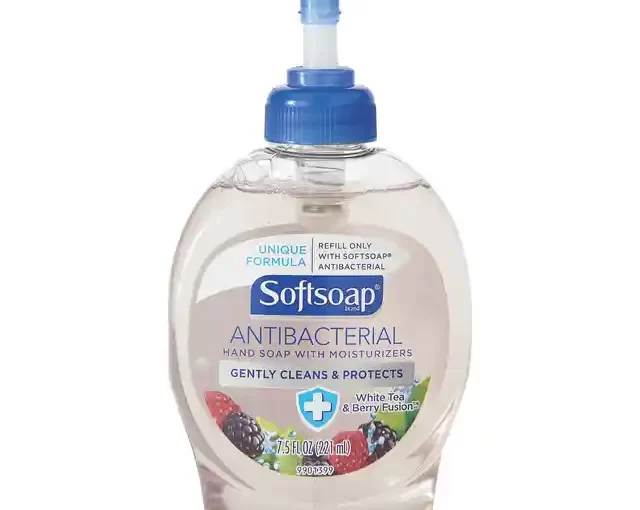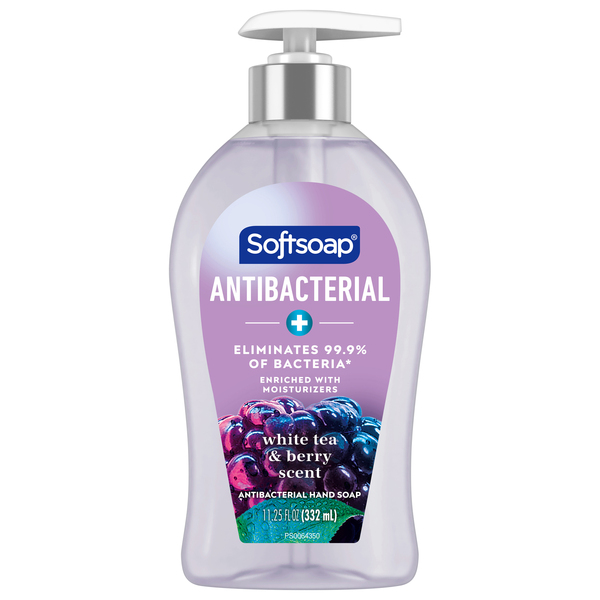What Is Antibacterial Hand Soap?
Antibacterial hand soap is a special type of soap. It’s designed to kill bacteria and germs. Regular soaps clean, but this one disinfects as well. It often contains special ingredients for this purpose.
Ingredients in Antibacterial Hand Soap
Key ingredients make antibacterial hand soap effective. These include triclosan and triclocarban. However, some safer soaps use natural ingredients. For example, thyme oil and tea tree oil are common.
How It Differs From Regular Hand Soap
Unlike regular soap, antibacterial soap targets bacteria specifically. Regular soap works by removing dirt and germs. Antibacterial soap goes further to kill germs on contact. This is its unique advantage. It is especially important in healthcare settings or where hygiene is key.
Benefits of Using Antibacterial Hand Soap
Antibacterial hand soap offers several advantages over regular soap. Formulated specifically to disinfect, it reduces the risk of spreading illnesses by effectively killing germs and bacteria.
Efficacy Against Germs
Antibacterial hand soap is highly effective against harmful microorganisms. When used correctly, it can significantly lower the presence of germs that cause common illnesses like flu and colds. This efficacy is crucial in maintaining personal and public health, particularly in settings where hygiene is paramount.
Suitable Environments for Use
This type of soap is ideal for environments with high sanitation requirements. These include healthcare facilities, kitchens, and schools. Its use is also beneficial in workplaces to maintain a healthy workforce and in homes to protect families during flu seasons or outbreaks.
Top Antibacterial Hand Soap Brands
Choosing the right antibacterial hand soap is crucial for effective hygiene. While there are numerous products on the market, not all are created equal.
Criteria for Safety and Effectiveness
When selecting an antibacterial hand soap, it’s essential to consider both safety and effectiveness.
- Ingredients: Look for soaps with proven antibacterial properties, like thyme oil or tea tree oil, and avoid harmful chemicals such as triclosan and triclocarban.
- FDA Approval: Ensure the product complies with FDA regulations and guidelines.
- Efficacy: Verify that the soap can kill a broad range of bacteria and germs through independent lab testing results.
- Skin Sensitivity: Consider products that are gentle on the skin, especially if used frequently.
- Brand Reputation: Reviews and recommendations can help gauge the trustworthiness of a brand.
Recommended Products
Based on these criteria, here are some recommended antibacterial hand soap products:
- Brand A: Features tea tree oil, a natural antibacterial agent, and has positive consumer reviews for effectiveness and skin-friendliness.
- Brand B: Offers a formula with thyme oil and is known for its eco-friendly packaging.
- Brand C: Gains recognition for being free of controversial chemicals and FDA-approved.
- Brand D: Popular among healthcare professionals for its high efficacy against a variety of germs.
By choosing a product that adheres to these standards, you can ensure a safer and more effective hand-washing experience. Remember to replace the product names with actual brands you have researched or recommend based on your professional opinion.
Safety Concerns With Antibacterial Hand Soaps
While antibacterial hand soap can be highly effective, it’s not free from safety concerns. Some chemical ingredients used in these soaps may pose health risks.
Chemical Ingredients and Their Risks
Known chemical ingredients such as triclosan and triclocarban have been the subject of scrutiny. These chemicals can contribute to bacterial resistance and may disrupt hormonal balances. Prolonged exposure could potentially cause more harm than good. Therefore, it’s wise to choose antibacterial hand soaps with safer natural alternatives like thyme oil and tea tree oil.
FDA Guidelines and Regulations
The FDA plays a crucial role in ensuring that antibacterial hand soaps are safe for consumers. Their guidelines and regulations have led to the banning of certain chemicals in these products. For instance, triclosan is no longer permitted in antibacterial hand soap formulas due to its associated risks. Always check if the soap has FDA approval to guarantee compliance with health and safety standards.
How to Properly Use Antibacterial Hand Soap
Using antibacterial hand soap correctly is key to getting the full benefits. Follow these guidelines to maximize effectiveness.
Best Practices for Washing Hands
To effectively use antibacterial hand soap, follow these steps:
- Wet hands with water.
- Apply a generous amount of soap.
- Lather for at least 20 seconds, covering all parts of the hands.
- Rinse thoroughly under running water.
- Dry hands with a clean towel or air dryer.
Remember to scrub under fingernails and between fingers, where germs often hide.
Common Mistakes to Avoid
Avoid these common hand-washing errors to ensure optimal use of antibacterial hand soap:
- Skipping areas like the back of your hands, wrists, or between fingers.
- Washing too quickly and not scrubbing for at least 20 seconds.
- Not using enough soap to create a good lather.
- Rinsing soap off too quickly before it can kill germs.
- Using a dirty towel for drying hands, which can re-contaminate them.
By avoiding these mistakes and washing hands properly, you can significantly reduce the risk of illness. Use the antibacterial hand soap wisely to ensure safety and effectiveness.
Environmental Impact of Antibacterial Soaps
While antibacterial hand soap is effective in hygiene, it has environmental implications.
Biodegradability of Ingredients
Not all ingredients in antibacterial hand soaps degrade naturally. Substances like triclosan can persist in the environment. They potentially disrupt ecosystems and water quality. Opting for soaps with naturally derived ingredients, such as thyme oil or tea tree oil, can lessen these impacts. These substances break down more easily and are less harmful to the environment.
Alternative Eco-friendly Options
There are eco-friendly alternatives that minimize environmental impact. Biodegradable, organic antibacterial soaps are gaining popularity. They use ingredients that do not accumulate in nature. Many brands now focus on creating products that balance efficacy and eco-friendliness. These alternatives often come in sustainable packaging further reducing ecological footprints. Prioritizing these options helps protect both health and the environment.
Future Trends in Antibacterial Hand Soap
As we progress, the evolution of antibacterial hand soaps is inevitable. It’s an exciting time, with new developments poised to offer even safer and more eco-friendly options for consumers.
Innovations in Ingredients
Innovative ingredients are at the forefront of future trends. Companies are exploring novel antibacterials derived from natural sources. These could offer the same, if not better, efficacy without the environmental and health risks associated with traditional chemical components. For instance, researchers are investigating various plant extracts known for their antimicrobial properties. There’s also a keen focus on harnessing probiotics – ‘good’ bacteria that inhibit the growth of harmful microorganisms on the skin. This switch to more natural and sustainable ingredients may not only be better for our health but also for our planet.
Shifts in Consumer Preferences
Consumer preferences are shifting towards products that align with a healthier lifestyle and environmental consciousness. People are increasingly looking for antibacterial hand soap brands that list transparency, sustainability, and chemical-free formulations as their core values. The demand for products that come with eco-friendly packaging and a clear label of ingredients is on the rise. Furthermore, consumers are becoming more educated and cautious about the soaps they use, often preferring those with certifications from credible organizations that attest to their safety and efficacy. This shift in preferences is a strong driver that will shape the development of the next generation of antibacterial hand soaps.



